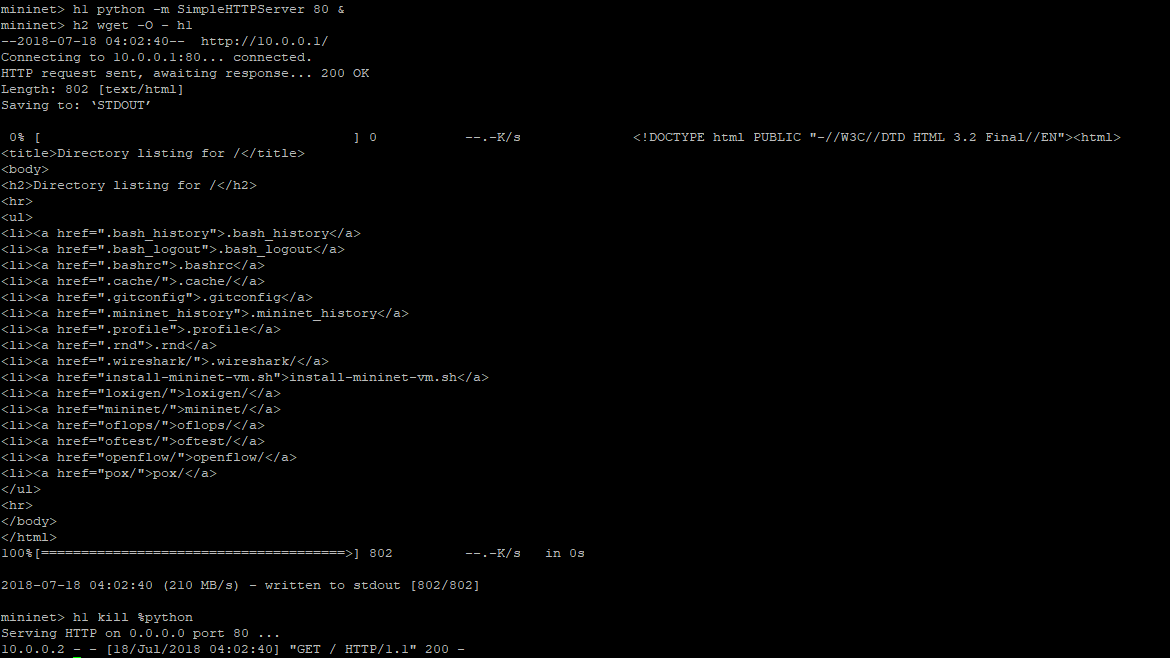EMAIL SUPPORT
dclessons@dclessons.comLOCATION
USMininets Command & Flow mapping
With the help of Mininet, you can create the Virtual switch and Host and these switches are capable of listening OpenFlow protocols massages.
Mininet has rich set of CLI argument some of them are :
--Topo: it is used to tell Mininet what kind of topology is going to be build. Some pre defines topologies in Mininet are linear, Tree and minimal.
--mac: This feature generates the MAC address of Hosts based on host ID.
-V debug: It is used for debugging output of Mininet.
--arp: This will generates ARP table of hosts with the ARP entries of each other. If you have two hosts h1 and h2 , using --arp its gives the h2 Mac address inside the ARP table of h1 and vice versa.
--test ipref or –test pingall: Once topology is created , with this command , all host will start ping to each other. Iperf will generates UDP packets between source and destination.
Some Mininet command line are also discussed here :
Net : This will show the topology and connectivity between hosts and switches in Mininet

Links: This will show you links between host and switches and also test them.

Nodes: This command in Mininet will display list of all nodes like host , switches , controller etc.

Dump: this will dump the information about all nodes.
How to run a simple webserver on h1 and webclient on h2.
mininet> h1 python -m SimpleHTTPServer 80 &
mininet> h2 wget -O - h1
mininet> h1 kill %python

Dpctl: With the help of this command you can check the flows. This command helps Mininets to talk to switch and get the status of flows.

This is the output you receive after running the pingall example. In the pingall example, OpenDaylight has created a flow entry in switches to simply send all packets from port 1 to port 2 on each switch and vice versa.
If OpenDaylight configures a specific flow with an IP address or MAC address, then you will be able to see more details in your flow table.




LEAVE A COMMENT
Please login here to comment.